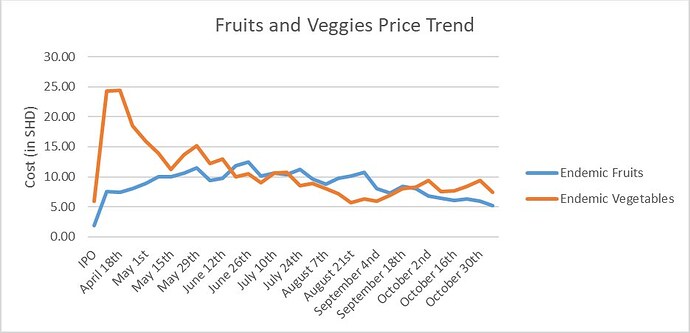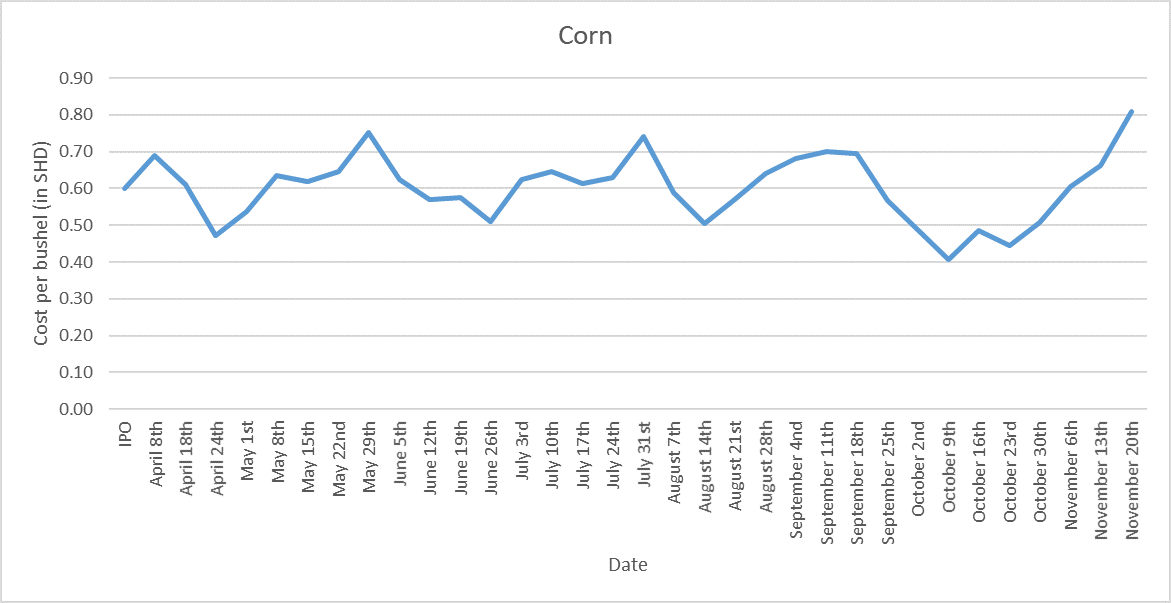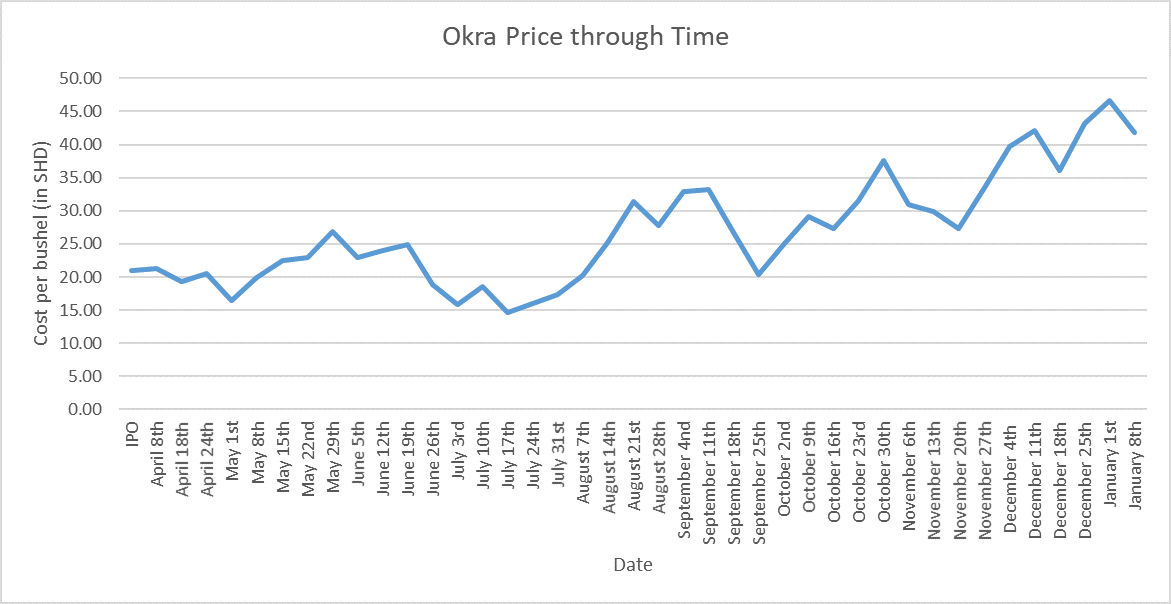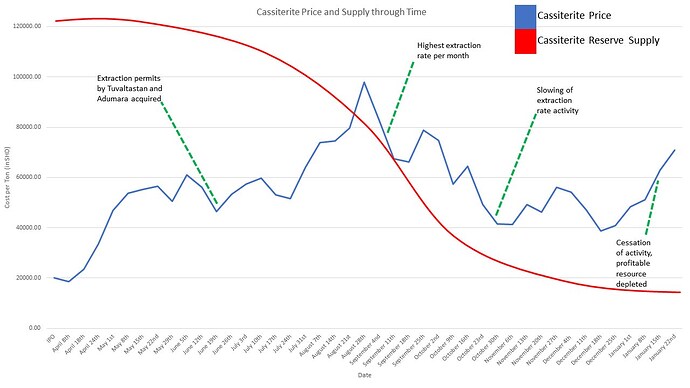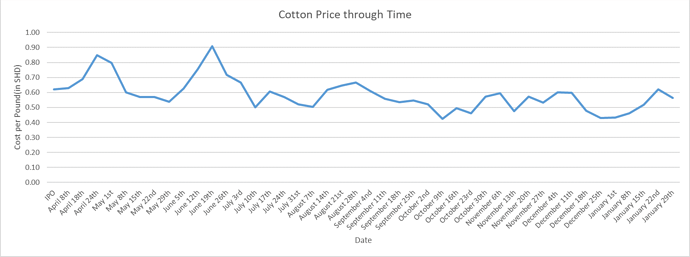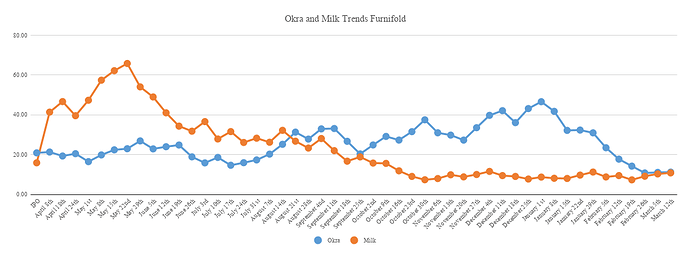The New Furnifoldian Times
-Since 1813-
August 21, 2017
[spoiler]- by David Rezendes
After a war containing a coup d’etat, a fascist takeover and military junta, massive napalm strikes against small islands, an international refugee incident, and a nuclear power plant meltdown, one of the surprisingly chaotic elements of the War in Aurora concerns the military of Furnifold’s invasion into the major Xagrurg port city of Eidenburgh. The Royal Defense Force (RDF) of Furnifold, with no more than twenty-one thousand troops, launched an eight-day invasion into Xagrurg’s major port city, inhabited by twenty million people. During these eight days, all matter of retaliation came Furnifold’s way, from civilian militias to firebombing campaigns, to supposedly mechanized units. Using exclusive interviews from those on the ground, this investigate report will delve into these eight days, and consider why Furnifold launched such a daring invasion, and how it went wrong.
Day One- The PKFU and the Tip of the Spear
Furnifold Peacekeepers were stationed in the mainland of Xagrurg, in response to being called upon as part of a major ceasefire agreement between the Staynish-Cathalrus Empire (SCE) and the Greater Xagrurg Empire (GXE). There were nearly seven thousand soldiers stationed near the demilitarized zone, but upon a renewal of tensions, the RDF made the decision to recall the Furnifold PKFU soldiers. According to military reports, this recall was part of what it called "Operation LAKEHOUSE,"an attempt by Furnifold to push forward into the GXE and launch an Allied staging ground into Xagrurg. Furnifold partnered with the Allies, which comprised Kuthernburg and its commonwealth, Tretrid, The Oan Isles, and the SCE. The opposition was known as the Axis, which comprised the GXE, Ethalria, Kostromastin, and Bielarus.
In this operation, Furnifold PKFU forces were in Eidenburgh being evacuated, when they received orders to turn around and secure the port area for the Allies. Assisting them was the 1st Combined Arms Brigade, also known as “The Tip of the Spear” because the brigade is the first brigade to be called into conventional warfare. The brigade exited the evacuation vessels, which also included civilian cargo ships, drove back the GXE forces nearby, and secured the port area. In total, there were around 7,600 soldiers as part of this assault. Also included were almost two hundred vehicles, including anti-aircraft guns.
Soon after, the forces came under fire from the GXE navy, and quickly-mobilized civilian militias. According to sources in the RDF, the militas posed little to no trouble, but the GXE navy bombarded the port. The previously used civilian ships blocked the entrance to the port, and though destroyed, they served as a buffer from the GXE ships from entering the port area. This provided cover for the Furnifold forces as they pressed forth into the city. Until the air strikes began.
Day Two- The Push West and the Firebombing of Xagrurg
The GXE recognized the civilian militias were not strong enough to completely repel the Furnifold fighters. Their main force of twenty-thousand was mobilizing outside of Eidenburgh, and would enter the city soon. Furnifold pushed west, in an attempt to link up the waiting Kuthernburg forces who had entered the mainland. The GXE High Command decided to use their considerable air power to bomb their own port facility, stating that it was done in order to prevent more allied forces from landing into the port, and to prevent millions of people dying. In actuality what happened was a haphazard bombing campaign, including the use of incendiary bombs to obstruct the path of Furnifold. Because of the considerable number of anti-air Furnifold brought along, the air attacks were not as effective at first, and the GXE dealt more damage to the civilians and civilian militias scattered throughout the city. It was in part because of this air attack that Furnifold was able to link up their forces with the Kuthernburg force nearby.
Day Two was largely a success, due in part to the number of counter-air units and the misunderstanding by the GXE of the situation on the ground. Day Three was ripe with more resistance.
Day Three- The Pressure Lifted off the Port and the GXE Infrantry
With the port area and the western portion of the city under Furnifold and Kuthernburg control, the forces solidified their defenses in preparation for the massive invasion of GXE forces from outside of the city. By this time, the GXE forces had completely mobilized and entered the city, and, according the GXE High Command, an additional twenty thousand were on their way. The GXE outnumbered Furnifold and Kuthernburg at least three to one at this point. While the two Allied nations had the advantage of time, they set up artillery throughout the western city skyline, serving as an obstruction to potential enemy combatants. In the meantime, the GXE deployed submarines to the port, in an attempt to destroy the Furnifold ships still stationed there. Before the submarines could get to their target, they were waylaid by the arrival of the navy of The Oan Isles, which effectively pushed back the GXE cluster of ships and submarines near the port area. Now, until the remainder of the invasion, there would be no more assault from the sea. The Oan Isles also used their position to launch strikes into the GXE positions outside the city, assisting with hindering the GXE counter-assault.
But the GXE had entered the western portion of the city at this point, and soon firefights would begin in Eidenburgh.
Day Four- Airstrikes, Infrantry, and the Opening of the new Front
The twenty-thousand GXE soldiers stopped the push by the Furnifold and Kuthernburg forces in the west. As fighting bogged down in this location, the looming threat of an additional twenty-thousand reinforcements loomed near. The port, meanwhile, was continuing to see airstrikes, this time a more precise renewed effort to target the anti-aircraft weapons employed by Furnifold. The use of Unmanned Aerial Vehicles was a new twist by the GXE against Furnifold, and the GXE used the UAVs to their advantage. The number of anti-air guns taken out by the airstrikes rose to the highest they had been at that point in the invasion. Several Furnifold recovery vehicles were being tasked around-the-clock to get as much of the anti-air material to more secure locations.
Furnifold recognized it needed to take the pressure off the port, and could not rely on the west to do so. The port forces split up, about two thousand of them pushed east, to extend the range the Furnifold Navy could extend to. The infantry of Furnifold were able to extend their east reach out to several beltway nodes in Eidenburgh, without much opposition by the GXE. It appeared opening the new front had been successful, and the opportunity to strike the GXE could be seized.
Day Five- GXE Counter-Attack and the Bombing of the Port of Eidenburgh
The remainder of the GXE reinforcements had effectively mobilized outside the city, and were ready to push into the west or the east. Furnifold forces in the east were not prepared to launch strikes against these reinforcements, as they effectively outnumbered Furnifold ten to one. The forces would need more support from other Allies, besides the Oan Isles and their occasional strikes against the GXE. The Oan Isles were currently occupied with an invasion into Nuremkastel, the annexed city in Kostonia-Obertonia under GXE control. No other Allied force came to aid Furnifold, and because of this, the front on the east could not press forward anymore. The GXE sent their forces to the west, whose Furnifold and Kuthern defense was beginning to fray. Also almost completely frayed was the port area, the first location Furnifold invaded from. Constant airstrikes by the GXE had crippled the anti-air defenses from Furnifold, as well as most of the buildings in the port. The commander of Furnifold determined that the port area would not hold much longer, and made plans to move the forces in the port east or west by the next day. The invasion by Furnifold was losing its potency under a relentless assault.
Day Six- The Fall of the Port and the Bolstering of the two Flanks
Eidenburgh port had fallen. The area was largely rubble, most of the infrastructure was destroyed. According to architectural and other reports, it will likely take until the end of the year before the GXE can rebuild the port enough to be at the level the country was exporting from the port before the invasion. Under assault from airstrikes and civilian militias, the Furnifold forces made their way to the east or west, to bolster the defenses in both. The Furnifold naval ships also split up, and were used as ships to care for the wounded, ready to evacuate if necessary.
The western flank was under constant assault by the invading GXE forces. Forty-thousand strong, the GXE forces outnumbered Furnifold and Kuthernburg nearly three-to-one, even with the recent influx of Furnifold forces. Artillery defenses in the buildings were struck by the GXE, and, instead of using aircraft, the GXE employed more mechanized units to take down the Allied defenses. The western front were being pushed back steadily, and it would likely not be able to survive unless more reinforcements were to arrive.
Over on the eastern flank, some of the GXE forces were beginning to mobilize, ready to begin an assault on the Furnifold forces camped out there. Furnifold commanders in the eastern front, knowing their situation was precarious, made plans to assault and hopefully take over the nearby GXE military base, a much more defensible position than maintaining control of the beltway on Eidenburgh.
Day Seven- The Western Flank Falls and the Furnifold Eastern Force Attacks
Under constant pressure from a massive GXE force, the western flank was pushed back to a point where it was no longer strategic to be defended. The Furnifold RDF made plans to evacuate their soldiers onto their waiting ship, and were assisted by Kuthernburg, who laid down mines to hinder the progress of the GXE and transported many Furnifold soldiers back to their ship. Since most of the vehicles and anti-air was destroyed by the GXE at this point, the evacuation would have been much more devastating had Kuthernburg not assisted. Even so, laying down landmines resulted in international condemnation on Kuthernburg, due to their potential to be more harmful to civilians than combatants. For its part, Kuthernburg stated that the nation would be willing to pay reparations to civilians impacted, and the soldiers who laid the mines were swiftly punished.
It was due to these efforts by Kuthernburg that Furnifold was able to escape with minimal casualties. From there, the commander decided not to send the force to the eastern flank, until it was determined that flank was sustainable. At this time, the eastern flank launched the assault on the GXE military base in the northeast.
Day Eight- Retreat
The assault on the military base failed. Not bolstered by any reinforcements, the Furnifold soldiers were repelled by the mobilized GXE units defending the base, plus were going to be overrun by the nearly forty-thousand GXE forces coming from the west. The commander on the eastern flank made the decision to evacuate, which Furnifold did as quickly as possible. The remaining ships met up with the Gronmund Task Group in Oan safe waters, and assessed the situation. According to military commanders, the invasion of Eidenburgh was only one part of Operation LAKEHOUSE, and the other component had yet to be implemented. The RDF would not get the chance to implement it though.
The End of the War
With the nuclear power plant meltdown in Nuremkastel, the Allies and Axis recognized the war in Xagrurg was finished. A treaty was signed, ensuring independence for the Islands of Yor and Kostonia-Obertonia, and ensuring sovereignty for the GXE. In total during this war, Furnifold lost nearly two hundred soldiers, and over seven hundred wounding or missing in action. Most of their vehicles had been destroyed, including, according to government sources, an experimental sound cannon used by counter-insurgent forces in Yor. Eidenburgh was crippled, thousands of civilians in the city died or were wounded, and will likely take years to recover.
Furnifold launched a massive invasion into a much stronger country, with the hope that more allies would come to the RDF aid. The support hardly materialized, and Furnifold was left to fend off against a massive force without assistance. The operation had been described as genius, even considering the potential fallout from using PKFU forces as a hostile military. The enactment of it was not as genius, however. Furnifold lost soldiers, and many will never be the same after all they saw. One Kuthernburg soldier stated that the assault was “hell worse then what my pops told me happen in the jungles of LatianBurg.” Magistrate d’Arrigo’s office has stated that the Magistrate is currently visiting Gronmund Port, where all those wounded are located, and will be making calls to the deceased’s families.
The most ambitious military campaign in recent Furnifold memory resulted in defeat. After eight days of complete chaos, the main advantage this left the Allies was that it took pressure off the invasion of Nuremkastel. Ultimately, the war concluded, a treaty was signed, and the world can see some modicum of peace, before another conflict occurs. It remains to be seen what Furnifold’s role in this future conflict could be.
[/spoiler]
[spoiler]- By Neve Amelia-Thomas and Adam Bly
After the news last week by the Chancellor’s office that Furnifold’s budget proposal was being reworked after being audited, Furnifold officials announced the sale of Gronmund Port in Actuaria. The sale, according to officials, represents “the new direction of Furnifold to using a more fluid shipping system, setting the nation up to increase shipping throughout all of Urth, not just Aurora.” According to details of the agreement, Furnifold has sold Gronmund Port, an 800 square kilometer location comprised of 23,000 people to the nation of Kaeliv for nearly 2 billion Kirib. In addition, Kaeliv is decreasing tariffs from traded goods, giving foreign aid over a twelve-year period, and allowing the use of a military base by the Furnifold navy.
According to sources close to the auditors of the Furnifold budget, there exists a nearly 2 billion dollar shortfall, prompting speculation that the sale of Gronmund Port had to do with maintaining a budget surplus. This comes in the wake of the auditors determining gross negligence in allocation of national funds. While Furnifold’s original proposed budget was 3.5 billion for the fiscal year-and-a-half, the auditors found that this represented an over 2 billion dollar difference between available national funds and what got allocated to the budget. There is no indication of where these additional funds are spent, but some speculate that the officials are using this to “grease the palms” of the power players in McLendal, in order to keep several projects and kickbacks flowing. If this is determined to be true, this would represent a serious scandal in the wake of the national audit, and would likely bring investigation into both the Chancellor’s office and the d’Arrigo Administration. Both have refused to comment, stating the ongoing audit and budget reworking as the reason.
Insiders believe the new budget is going to be upwards of 7 billion dollars, as several measures will be put in place to provide oversight for the various departments and cabinets in the McLendal government.[/spoiler]
[spoiler]-by F.T. Morison
The d’Arrigo Administration has agreed to assist the PeaceKeeping Forces of Urth (PKFU) in their recent mission, titled PKFU in Imperial Fandom (PKFUIF). Imperial Fandom, a nation in Aurora just concluding an eight-year civil war, is devastated economically. The PKFU were asked to go into the country and establish security and economic development in the hardest hit areas. The PKFU are doing so by creating safe zones, areas that are secure and allow for the people of Imperial Fandom to be employed and trained in essential services. The PKFU have contracted several hundred Furnifold doctors, nurses, journalists, teachers, and agricultural specialists to staff the safe zones and train the inhabitants. The New Furnifoldoian Times has allowed a couple of its journalists to be embedded in the country, and will report on the progress made in these safe zones.
Also part of PKFUIF is to resettle the nearly eight hundred thousand refugees that have fled the country into neighbors Tuvaltastan and Dragonia. The PKFU has worked with national governments on Urth to accept and resettle these refugees. Currently, it is believed that all of the refugees will be resettled, and sources say that Furnifold has agreed to accept up to four hundred thousand of these refugees. The d’Arrigo Administration has not announced the details of the refugee resettlement package, so this was not confirmed by McLendal. If so, this would strain Furnifold resources, especially at a time when people of Furnifold are lacking basic necessities, especially in large cities like Boonefield and Chonvor City. Sources also state that other governments have agreed in theory to provide Furnifold with some resettlement funds, but this has also not been confirmed. [/spoiler]
[spoiler]- by Uche Markopolos
Current prices (in SHD):
Corn- 0.57 per bushel (up 13 percent)
Okra- 31.33 per bushel (up 24 percent)
Rice- 35.21 per bushel (up 12 percent)
Soy- 8.76 per bushel (up 25 percent)
Sugar Cane- 5.87 per bushel (down 5 percent)
Index total: 81.74 (up 16 percent)
Non-Index Commodities (in SHD):
Cotton: 0.65 per pound (up 4 percent)
Endemic Fruits: 10.10 per carton (up 3 percent)
Meat: 12.59 per pound (up 24 percent)
Milk: 26.77 per hundredweight (down 17 percent)
Endemic Vegetables: 5.68 per hundredweight (down 22 percent)
Wheat: 1.19 per bushel (down 6 percent)
Analysis: Fantastic week for the indexed goods, not so great a week for the non-indexed goods. Due to the recent PKFU mission in Imperial Fandom, the organization has bought massive amounts of most of the indexed goods, prompting confidence in the products and a continuation of the rise of staple foods. Okra, rice, and soy have hit all-time highs, and so has the total indexed goods. The big loser in the index was sugar cane, a surprisingly swift fall these past three weeks. While still higher than two months ago, it will likely continue to fall unless more demand is met.
On the non-indexed side, the only winner was meat, which saw its price rise after a couple of weeks of major stumbles. All the other commodities either stayed largely stable, or fell precipitously. Demand for milk has cooled in the aftermath of the national deal with the country of Mvulaland, and due to the mission in Imperial Fandom, the desire for Furnifold’s endemic fruits and vegetables has fallen, lowering prices and output back in Furnifold.
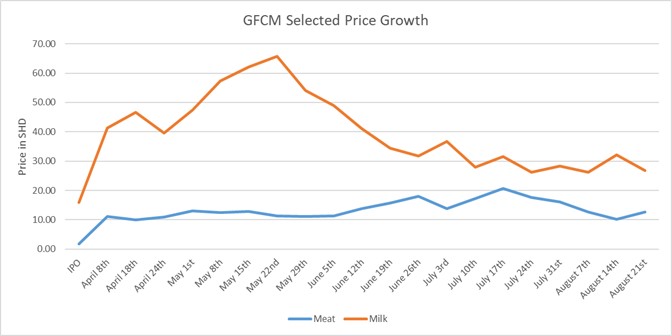
[/spoiler]


